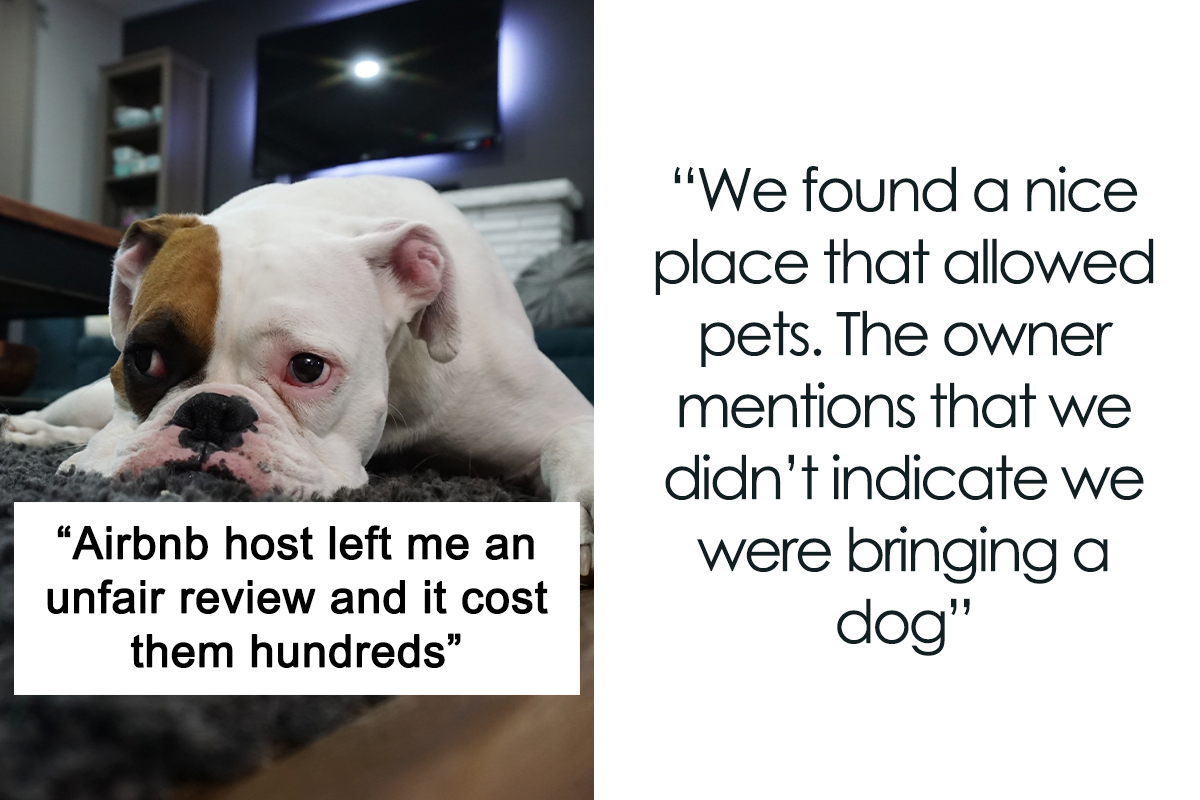
“It Cost Them Hundreds”: Airbnb Host Leaves Couple That Brought A Dog An Unfair Review, They Teach Him A Lesson
It’s difficult to find — and book — a nice rental. Between callous management companies, unfair laws, and predatory hosts, it often feels like everyone’s against you.
So when Reddit user District_Dan came across a listing that not only looked good but also allowed their dog, the couple immediately reserved it for their trip.
Only, they forgot to tell the owner of the property that they were bringing their pet. And even though he seemed to be fine with it in person, it was a completely different story when it came to communicating online.
This couple took their dog to an Airbnb that allows pets without informing the host about it
Image credits: Pixabay (not the actual photo)
When talking in person, he seemed fine with it but later left a bad review about the guests
Image credits: Edmond Dantès (not the actual photo)
So they came up with a revenge plan
Image credits: cottonbro (not the actual photo)
Image credits: District_Dan
However, it’s not just dissatisfied Airbnb guests who are turning to the internet to vent about using the platform. The hosts themselves have become increasingly disillusioned with it.
Whether shouting on Twitter or posting in Facebook groups, they’re also sharing their own challenges. There’s even a dedicated website called Airbnb Hell that accepts their rants.
While reading standalone cases, it might seem like some sort of underwhelming byproduct of the largely unregulated short-term rental industry is unavoidable, but they speak to larger trends.
For example, a 2021 report from Bloomberg detailed how Airbnb’s secretive crisis team spends millions of dollars to cover up crimes and other publicity nightmares in its listings.
That team is made up of about 100 agents in Dublin, Montreal, Singapore, and other cities around the world. Some have emergency services or military backgrounds. The team has the autonomy to spend whatever it takes to make a victim feel supported, including paying for flights, accommodation, food, counseling, health costs, and other expenses. A former “agent” who was at Airbnb for five years describes the approach as shooting “the money cannon.”
The platform recently set up an anti-party technology in an effort to defray hosts’ frustrations with large, destructive gatherings.
Everyone who had the romantic notion of home sharing as a means for paying their mortgages now has corporate competitors, too.
A study of short-term rentals in the U.K. found that the number of listings managed by hosts with a single property dropped from 69% in 2015 to just 39% in 2019.
These mega-hosts are able to operate at scale, maximizing efficiency on everything from pricing adjustments to cleaning staff and single-property hosts who can’t keep up are being elbowed out of the ecosystem.
So who is damaging these partnerships the most? Is it the guests? The hosts? Maybe Airbnb itself?
After reading the story, many people also shared their worst rental experiences
I have brought my dog to many LaQuintas and never mentioned bringing a pet since it says on their site that they are allowed. While I have never brought my dog to an air b&b I can see that happening by mistake. That being said, the renter tried to make it right. If I had been the owner I would have taken the pet fee! It makes no sense that he declined the fee and then wrote a bad review.
At motels, you're expected to tell them when making reservations or, if not making reservations, when you check in, whether you have pets, what kind, and how many, so they know to charge you a pet deposit.
Load More Replies...We stayed at a converted motel via VRBO (large family vacation). The host was there every day working in one of the units. He left the roll-out windows open so the unit could air out from paint fumes and my granddaughter cracked her head on them. The toilet in the master bath leaked so badly we had to keep towels wrapped around the base all week. Then he had the NERVE to complain that we “must have taken down the goose strings and there was goose c**p in the yard”.(Apparently he read somewhere that putting up string about 6” high along the beach would prevent the geese from crossing it and cramping in the yard.). We sat there and WATCHED the geese step across it…and guess what? They ALSO FLY! I’ll never use VRBO again.
I have brought my dog to many LaQuintas and never mentioned bringing a pet since it says on their site that they are allowed. While I have never brought my dog to an air b&b I can see that happening by mistake. That being said, the renter tried to make it right. If I had been the owner I would have taken the pet fee! It makes no sense that he declined the fee and then wrote a bad review.
At motels, you're expected to tell them when making reservations or, if not making reservations, when you check in, whether you have pets, what kind, and how many, so they know to charge you a pet deposit.
Load More Replies...We stayed at a converted motel via VRBO (large family vacation). The host was there every day working in one of the units. He left the roll-out windows open so the unit could air out from paint fumes and my granddaughter cracked her head on them. The toilet in the master bath leaked so badly we had to keep towels wrapped around the base all week. Then he had the NERVE to complain that we “must have taken down the goose strings and there was goose c**p in the yard”.(Apparently he read somewhere that putting up string about 6” high along the beach would prevent the geese from crossing it and cramping in the yard.). We sat there and WATCHED the geese step across it…and guess what? They ALSO FLY! I’ll never use VRBO again.

 Dark Mode
Dark Mode 

 No fees, cancel anytime
No fees, cancel anytime 


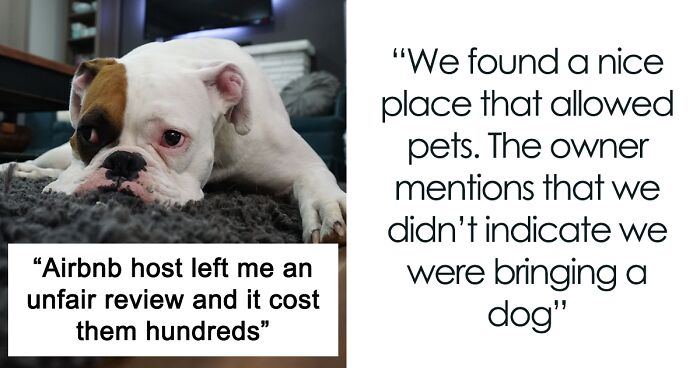










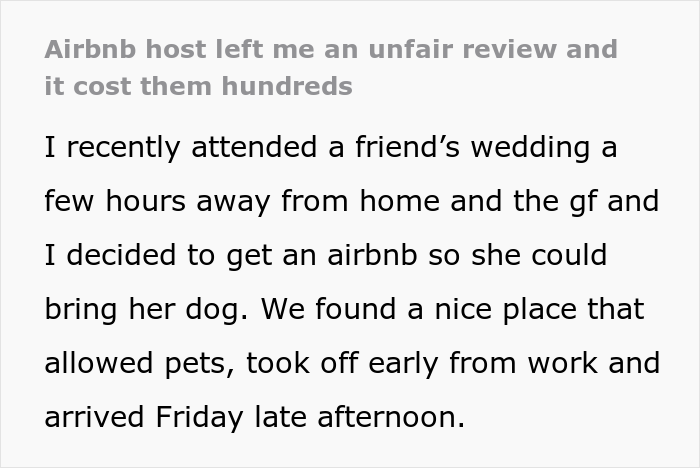



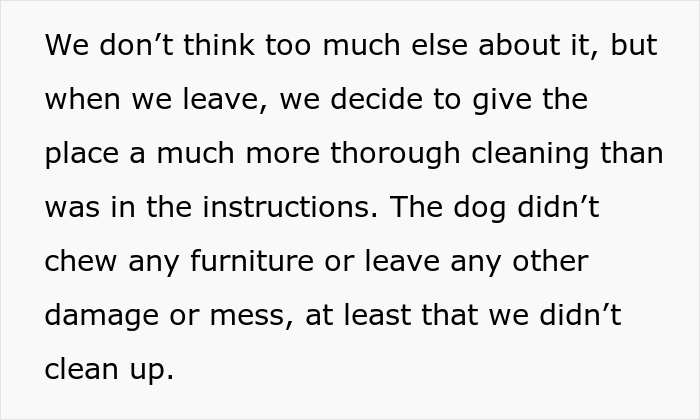
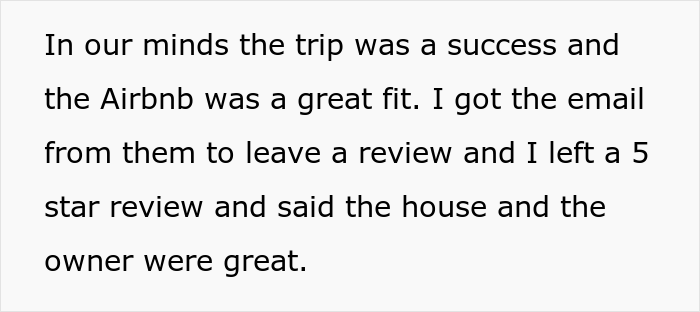

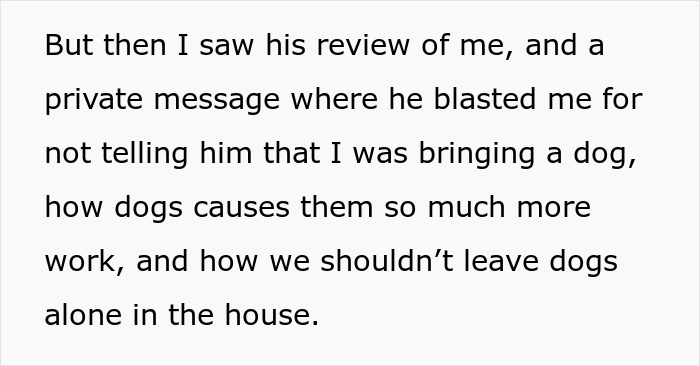

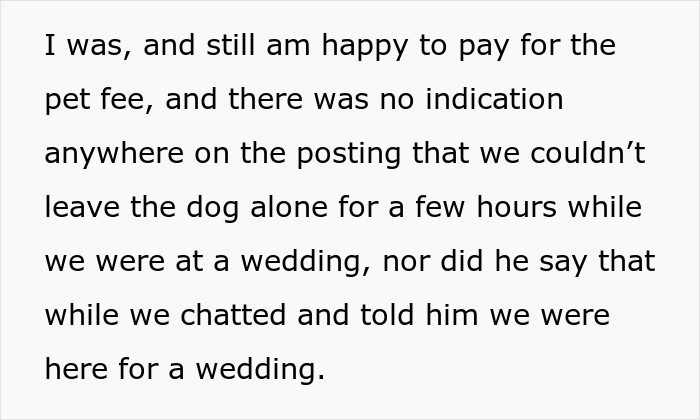


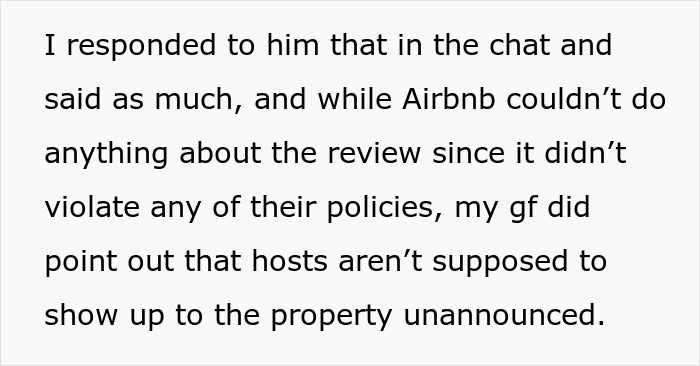


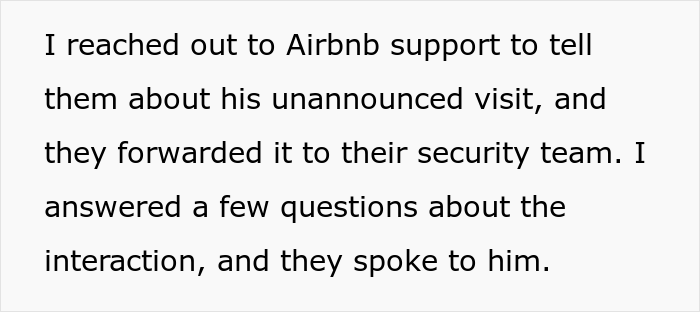
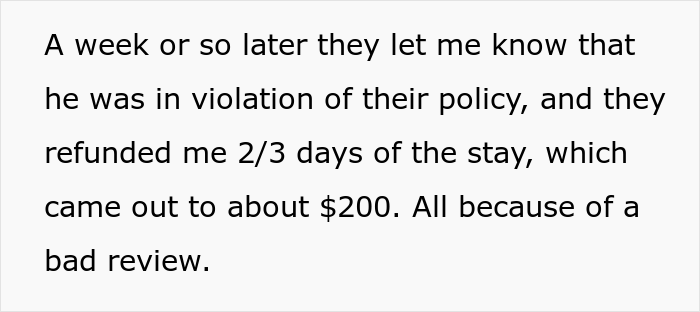
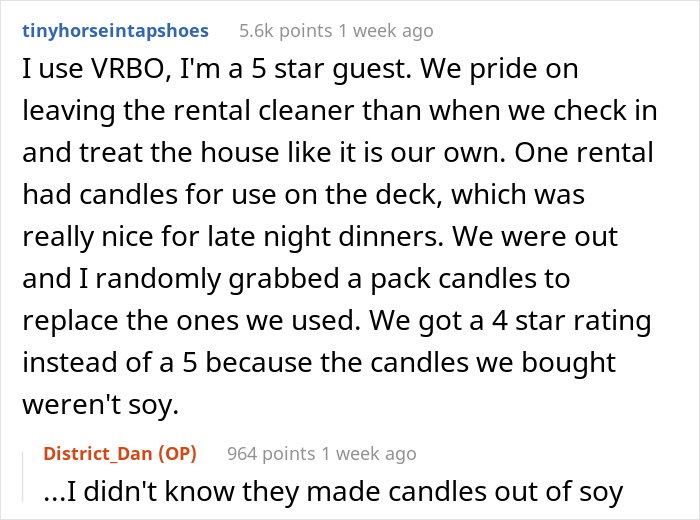
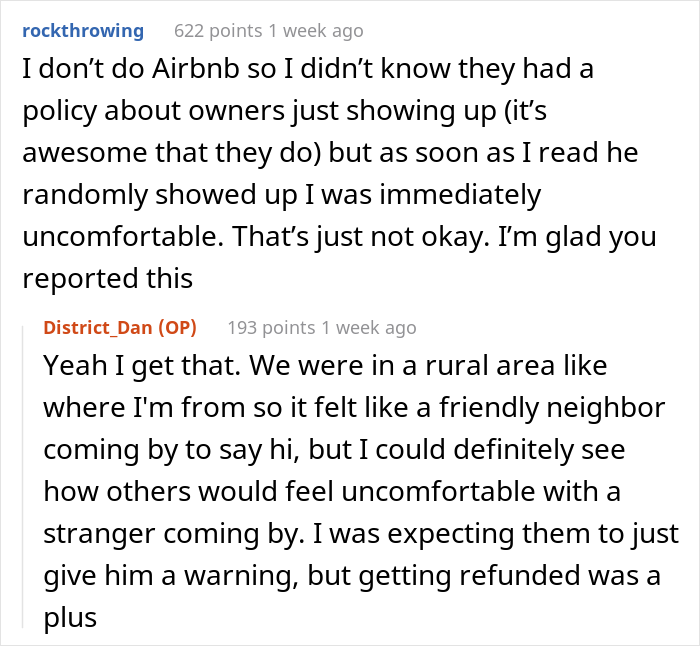
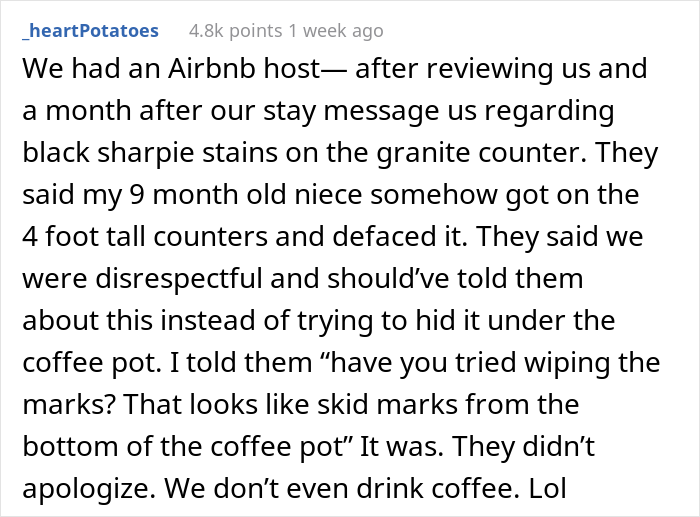

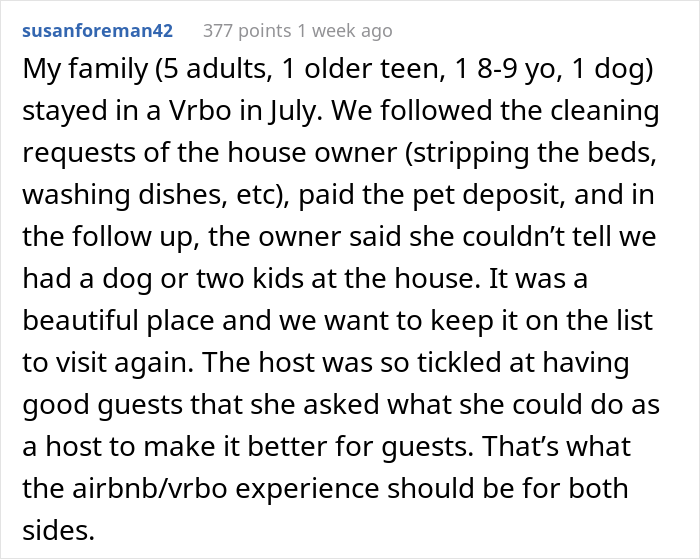
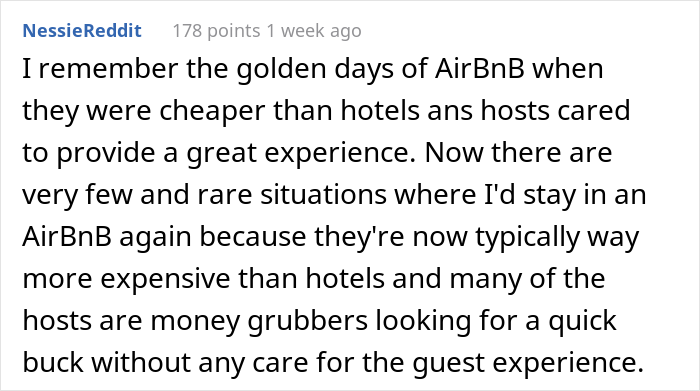
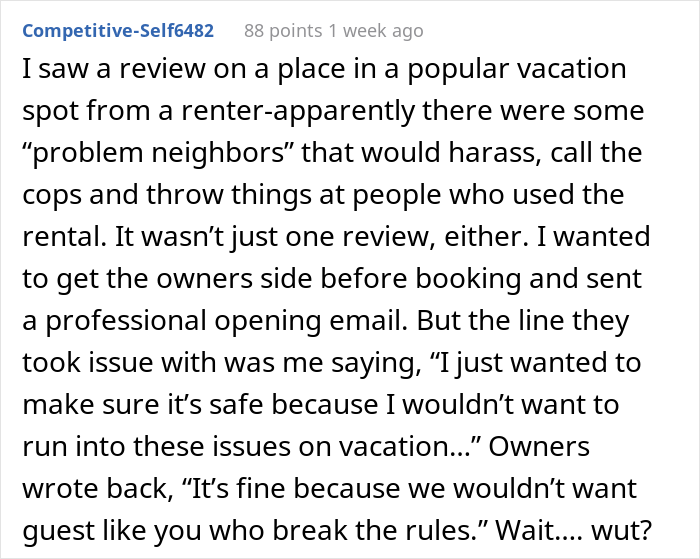
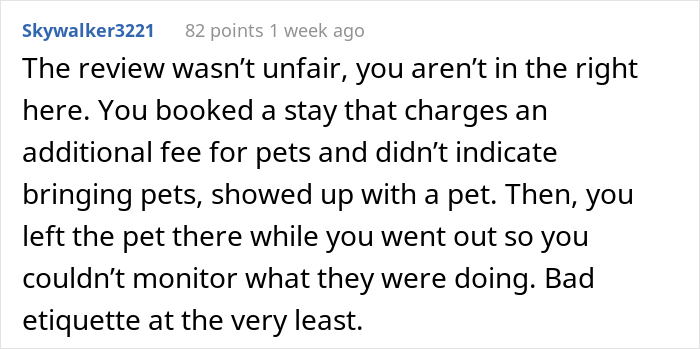
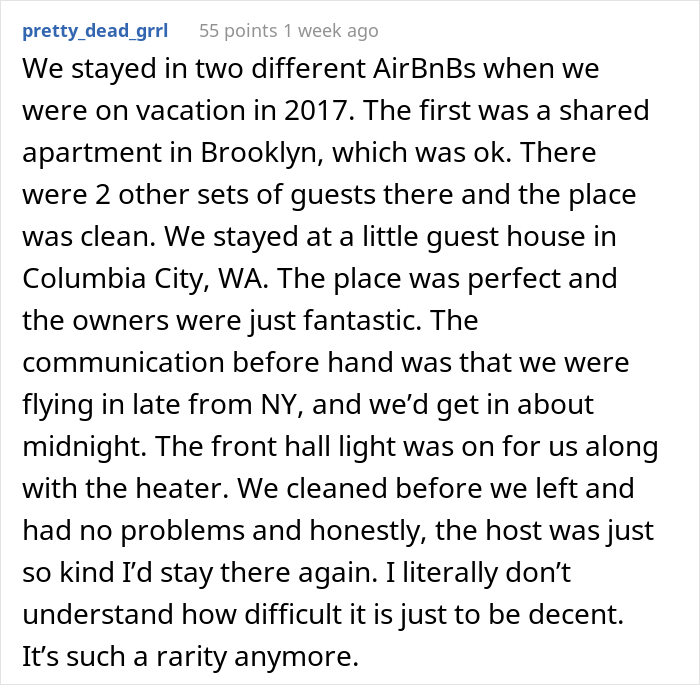
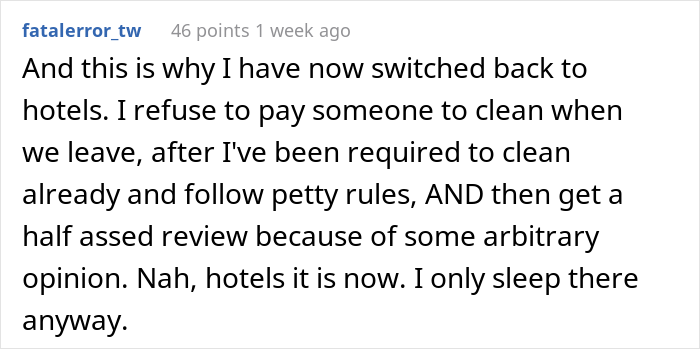








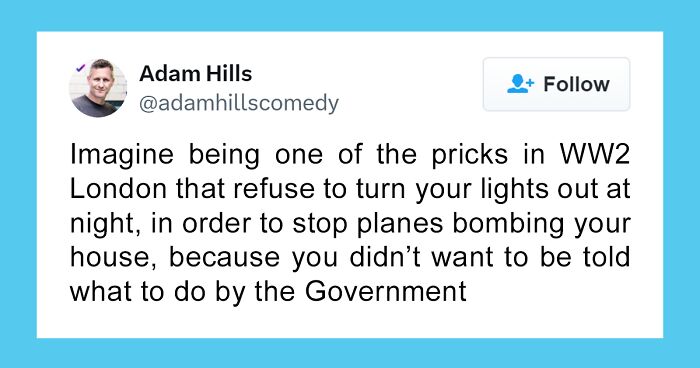
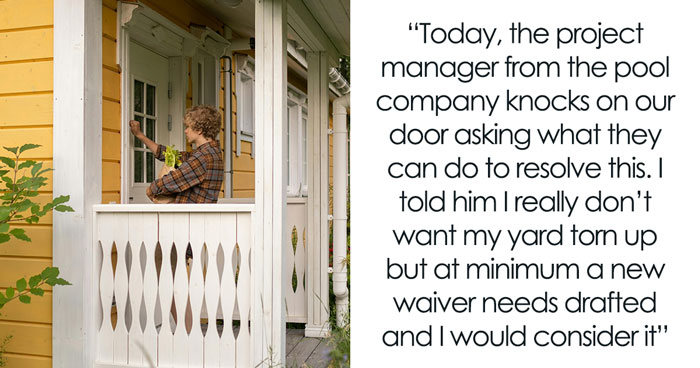
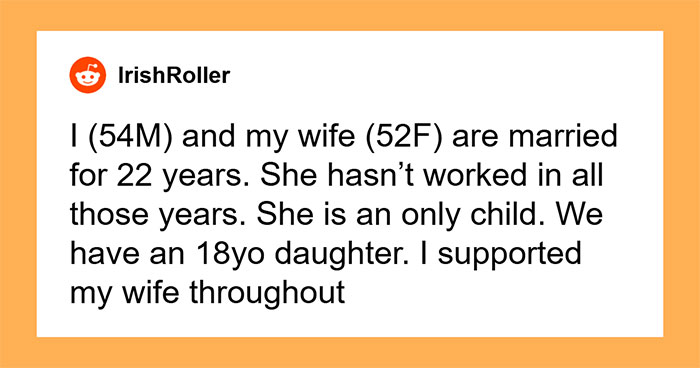









49
45